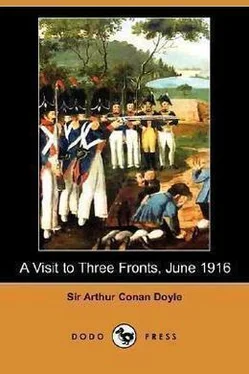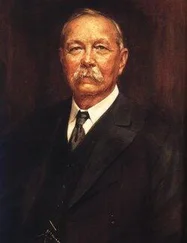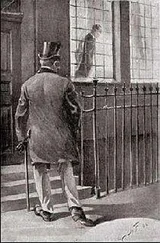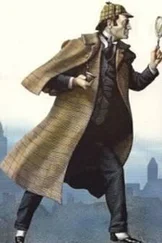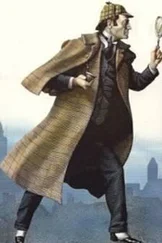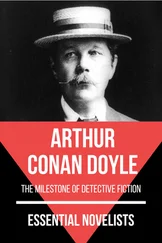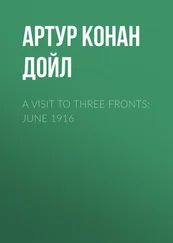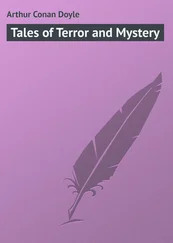Arthur Doyle - A Visit to Three Fronts
Здесь есть возможность читать онлайн «Arthur Doyle - A Visit to Three Fronts» весь текст электронной книги совершенно бесплатно (целиком полную версию без сокращений). В некоторых случаях можно слушать аудио, скачать через торрент в формате fb2 и присутствует краткое содержание. Год выпуска: 2014, Издательство: epubBooks Classics, Жанр: Биографии и Мемуары, Публицистика, prose_military, на английском языке. Описание произведения, (предисловие) а так же отзывы посетителей доступны на портале библиотеки ЛибКат.
- Название:A Visit to Three Fronts
- Автор:
- Издательство:epubBooks Classics
- Жанр:
- Год:2014
- ISBN:нет данных
- Рейтинг книги:3 / 5. Голосов: 1
-
Избранное:Добавить в избранное
- Отзывы:
-
Ваша оценка:
- 60
- 1
- 2
- 3
- 4
- 5
A Visit to Three Fronts: краткое содержание, описание и аннотация
Предлагаем к чтению аннотацию, описание, краткое содержание или предисловие (зависит от того, что написал сам автор книги «A Visit to Three Fronts»). Если вы не нашли необходимую информацию о книге — напишите в комментариях, мы постараемся отыскать её.
A Visit to Three Fronts — читать онлайн бесплатно полную книгу (весь текст) целиком
Ниже представлен текст книги, разбитый по страницам. Система сохранения места последней прочитанной страницы, позволяет с удобством читать онлайн бесплатно книгу «A Visit to Three Fronts», без необходимости каждый раз заново искать на чём Вы остановились. Поставьте закладку, и сможете в любой момент перейти на страницу, на которой закончили чтение.
Интервал:
Закладка:
My first experience of the Italian line was at the portion which I have called the gap by the sea, otherwise the Isonzo front. From a mound behind the trenches an extraordinary fine view can be got of the Austrian position, the general curve of both lines being marked, as in Flanders, by the sausage balloons which float behind them. The Isonzo, which has been so bravely carried by the Italians, lay in front of me, a clear blue river, as broad as the Thames at Hampton Court. In a hollow to my left were the roofs of Gorizia, the town which the Italians are endeavouring to take. A long desolate ridge, the Carso, extends to the south of the town, and stretches down nearly to the sea. The crest is held by the Austrians and the Italian trenches have been pushed within fifty yards of them. A lively bombardment was going on from either side, but so far as the infantry goes there is none of that constant malignant petty warfare with which we are familiar in Flanders. I was anxious to see the Italian trenches, in order to compare them with our British methods, but save for the support and communication trenches I was courteously but firmly warned off.
The story of trench attack and defence is no doubt very similar in all quarters, but I am convinced that close touch should be kept between the Allies on the matter of new inventions. The quick Latin brain may conceive and test an idea long before we do. At present there seems to be very imperfect sympathy. As an example, when I was on the British lines they were dealing with a method of clearing barbed wire. The experiments were new and were causing great interest. But on the Italian front I found that the same system had been tested for many months. In the use of bullet proof jackets for engineers and other men who have to do exposed work the Italians are also ahead of us. One of their engineers at our headquarters might give some valuable advice. At present the Italians have, as I understand, no military representative with our armies, while they receive a British General with a small staff. This seems very wrong not only from the point of view of courtesy and justice, but also because Italy has no direct means of knowing the truth about our great development. When Germans state that our new armies are made of paper, our Allies should have some official assurance of their own that this is false. I can understand our keeping neutrals from our headquarters, but surely our Allies should be on another footing.
Having got this general view of the position I was anxious in the afternoon to visit Monfalcone, which is the small dockyard captured from the Austrians on the Adriatic. My kind Italian officer guides did not recommend the trip, as it was part of their great hospitality to shield their guest from any part of that danger which they were always ready to incur themselves. The only road to Monfalcone ran close to the Austrian position at the village of Ronchi, and afterwards kept parallel to it for some miles. I was told that it was only on odd days that the Austrian guns were active in this particular section, so determined to trust to luck that this might not be one of them. It proved, however, to be one of the worst on record, and we were not destined to see the dockyard to which we started.
The civilian cuts a ridiculous figure when he enlarges upon small adventures which may come his way—adventures which the soldier endures in silence as part of his everyday life. On this occasion, however, the episode was all our own, and had a sporting flavour in it which made it dramatic. I know now the feeling of tense expectation with which the driven grouse whirrs onwards towards the butt. I have been behind the butt before now, and it is only poetic justice that I should see the matter from the other point of view. As we approached Ronchi we could see shrapnel breaking over the road in front of us, but we had not yet realised that it was precisely for vehicles that the Austrians were waiting, and that they had the range marked out to a yard. We went down the road all out at a steady fifty miles an hour. The village was near, and it seemed that we had got past the place of danger. We had in fact just reached it. At this moment there was a noise as if the whole four tyres had gone simultaneously, a most terrific bang in our very ears, merging into a second sound like a reverberating blow upon an enormous gong. As I glanced up I saw three clouds immediately above my head, two of them white and the other of a rusty red. The air was full of flying metal, and the road, as we were told afterwards by an observer, was all churned up by it. The metal base of one of the shells was found plumb in the middle of the road just where our motor had been. There is no use telling me Austrian gunners can't shoot. I know better.
It was our pace that saved us. The motor was an open one, and the three shells burst, according to one of my Italian companions who was himself an artillery officer, about ten metres above our heads. They threw forward, however, and we travelling at so great a pace shot from under. Before they could get in another we had swung round the curve and under the lee of a house. The good Colonel B. wrung my hand in silence. They were both distressed, these good soldiers, under the impression that they had led me into danger. As a matter of fact it was I who owed them an apology, since they had enough risks in the way of business without taking others in order to gratify the whim of a joy–rider. Barbariche and Clericetti, this record will convey to you my remorse.
Our difficulties were by no means over. We found an ambulance lorry and a little group of infantry huddled under the same shelter with the expression of people who had been caught in the rain. The road beyond was under heavy fire as well as that by which we had come. Had the Ostro–Boches dropped a high–explosive upon us they would have had a good mixed bag. But apparently they were only out for fancy shooting and disdained a sitter. Presently there came a lull and the lorry moved on, but we soon heard a burst of firing which showed that they were after it. My companions had decided that it was out of the question for us to finish our excursion. We waited for some time therefore and were able finally to make our retreat on foot, being joined later by the car. So ended my visit to Monfalcone, the place I did not reach. I hear that two 10,000–ton steamers were left on the stocks there by the Austrians, but were disabled before they retired. Their cabin basins and other fittings are now adorning the Italian dug–outs.
My second day was devoted to a view of the Italian mountain warfare in the Carnic Alps. Besides the two great fronts, one of defence (Trentino) and one of offence (Isonzo), there are very many smaller valleys which have to be guarded. The total frontier line is over four hundred miles, and it has all to be held against raids if not invasions. It is a most picturesque business. Far up in the Roccolana Valley I found the Alpini outposts, backed by artillery which had been brought into the most wonderful positions. They have taken 8–inch guns where a tourist could hardly take his knapsack. Neither side can ever make serious progress, but there are continual duels, gun against gun, or Alpini against Jaeger. In a little wayside house was the brigade headquarters, and here I was entertained to lunch. It was a scene that I shall remember. They drank to England. I raised my glass to Italia irredenta—might it soon be redenta. They all sprang to their feet and the circle of dark faces flashed into flame. They keep their souls and emotions, these people. I trust that ours may not become atrophied by self–suppression.
The Italians are a quick high–spirited race, and it is very necessary that we should consider their feelings, and that we should show our sympathy with what they have done, instead of making querulous and unreasonable demands of them. In some ways they are in a difficult position. The war is made by their splendid king—a man of whom every one speaks with extraordinary reverence and love—and by the people. The people, with the deep instinct of a very old civilisation, understand that the liberty of the world and their own national existence are really at stake. But there are several forces which divide the strength of the nation. There is the clerical, which represents the old Guelph or German spirit, looking upon Austria as the eldest daughter of the Church—a daughter who is little credit to her mother. Then there is the old nobility. Finally, there are the commercial people who through the great banks or other similar agencies have got into the influence and employ of the Germans. When you consider all this you will appreciate how necessary it is that Britain should in every possible way, moral and material, sustain the national party. Should by any evil chance the others gain the upper hand there might be a very sudden and sinister change in the international situation. Every man who does, says, or writes a thing which may in any way alienate the Italians is really, whether he knows it or not, working for the King of Prussia. They are a grand people, striving most efficiently for the common cause, with all the dreadful disabilities which an absence of coal and iron entails. It is for us to show that we appreciate it. Justice as well as policy demands it.
Читать дальшеИнтервал:
Закладка:
Похожие книги на «A Visit to Three Fronts»
Представляем Вашему вниманию похожие книги на «A Visit to Three Fronts» списком для выбора. Мы отобрали схожую по названию и смыслу литературу в надежде предоставить читателям больше вариантов отыскать новые, интересные, ещё непрочитанные произведения.
Обсуждение, отзывы о книге «A Visit to Three Fronts» и просто собственные мнения читателей. Оставьте ваши комментарии, напишите, что Вы думаете о произведении, его смысле или главных героях. Укажите что конкретно понравилось, а что нет, и почему Вы так считаете.
